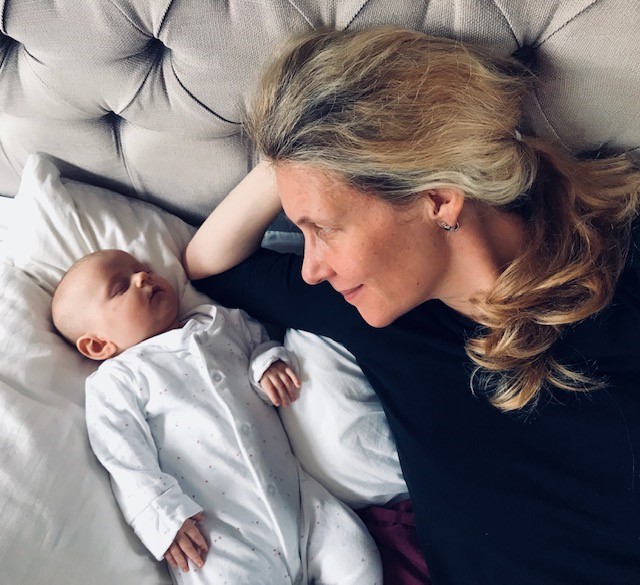My son is five years old now, a healthy and inquisitive little boy who loves football and Lego.
Just over five years ago, when the Syrian civil war hit an all-time low, I wrote the following in my notebook, which now sounds all too familiar again.
“Syria Baby”
When I was pregnant with you, millions of Syrian refugees went in little plastic boats over the Mediterranean Sea to seek shelter or walked over mountains, streets, and fields to reach peace.
I could not read about or listen to it anymore; it was too heartbreaking.
The week I went into labor, a woman gave birth in a makeshift tent camp in the parking area at Vienna Central Station. With her nine-month-old baby in her womb, she trekked there all the way from Syria.
As you started lifting your head for the first time, a little toddler covered in dust and blood was pulled from the gravel in Aleppo after a fighter jet dropped a bomb.
And when you smiled for the first time, I forgot all the misery.
Then, with your first spoon of sweet potato puree, children’s bodies washed up on the shores of Kos; even the Greek soldier carrying the lifeless body was crying.
And when you took your first bounces in the baby jumper, I could hear the UK’s then-Prime Minister, Theresa May’s assurances of controlling the migrant influx.
Migrants, refugees, criminals, them lot, all mingled together in the closed minds of the scared. It is always Us and Them.
Them with the different religion or the dictator regime or the warm climate we like to go to when we want to relax but want nothing to do with otherwise.
I don’t understand that. I don’t understand how you can feed your child organic sweet potato puree and listen to this and think “Them Lot” should go back to where they came from. There is nothing left to go back to.
So I turn off the news and I lift you up and press you against my heart and pray that you will never ask me why some children get washed up on the shore whilst others are eating sweet potato puree.
Because I don’t know.
I read this now, and I wonder what to make of it all. The headlines and coverage of the current evacuation efforts at Kabul airport and the pictures of desperate Afghan families queuing there, handing their babies over barbwires to American and British troops feels just the same, just as gut-wrenching.
Nothing has changed, apart from the dot on the map.
Yesterday, the headline featured in the news was that of a woman who went into labor on board a military aircraft flight from Kabul to Ramstein, Germany. The pilot had to descend the plane drastically to allow for the air pressure to be lowered and save the baby, who was delivered upon arrival in the plane’s cargo hold.
It reminded me of the woman in Vienna Central Station. Her baby will be five years old now too, just like mine—not a baby anymore. And the woman’s baby born on the plane will be five years old too, sooner than we think. And will we then be in the same situation only a little bit farther east, or south, or west?
It all feels so futile, and as I read on, I feel resignation rise up in me. Is this kind of suffering simply part of human existence and something to be accepted? What does this mean for those who live in seeming safety and security?
How do we best live our lives—these privileged lives we’ve been given—whilst not losing our empathy?
I think the way forward is to live in gratitude, to see the joy and generosity of others, and to share not just a little of the wealth we have but to also share our own joy and happiness. And to raise our children in a way that they are aware of their privilege and their luck (because luck is the only thing that separates us from the woman in Vienna Central Station and the many women and men left behind everywhere).
Andre Gide writes:
“Know that joy is rarer, more difficult and more beautiful than sadness. Once you make this all-important discovery, you must embrace joy as a moral obligation.”
Amongst all the chaos and despair, there were also uncountable acts of kindness and generosity. The airline pilot who lowered the plane, the young soldier who prevented another baby from falling onto the barbwire, and all the other people who lifted the little one over their heads. Those who handed out water, the families who donated clothes hundreds of miles away, the heartfelt speeches made by politicians all over the world finding the right words for the thoughts of so many of us.
Embracing joy as a moral obligation sounds like a good way forward to me. By embracing the joy we have inside us, not in apathy or ignorance but alongside the obligation to remain informed and not to look away, we will be able to hold both. It will be an exercise in finding balance that shall become the challenge.
I say, challenge accepted.
~











Read 6 comments and reply